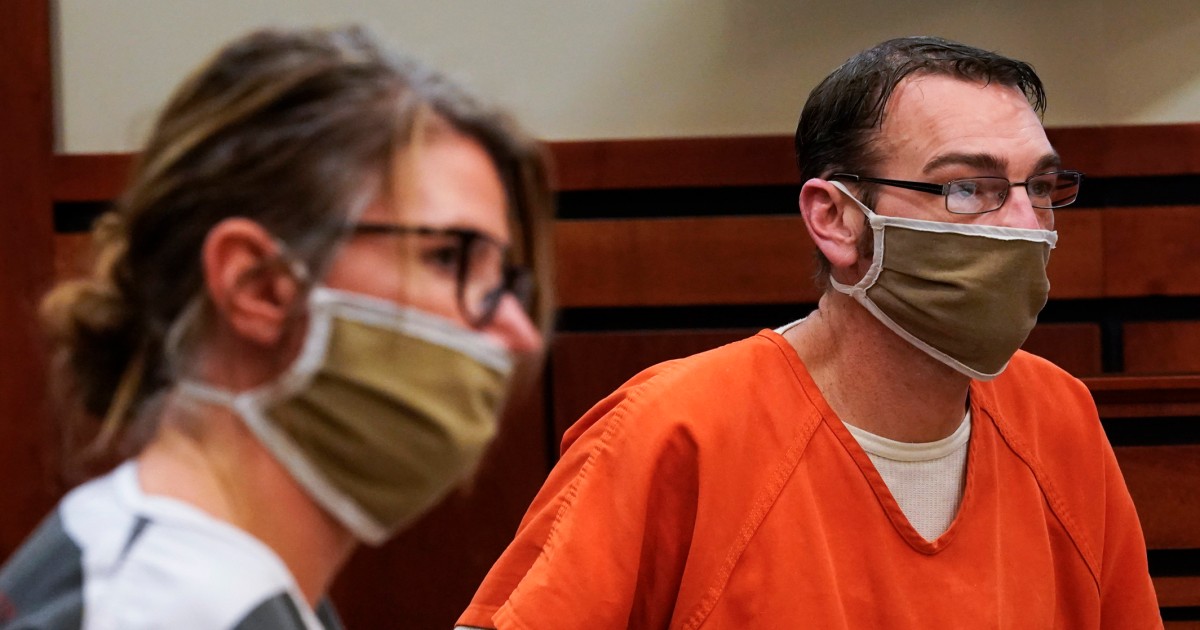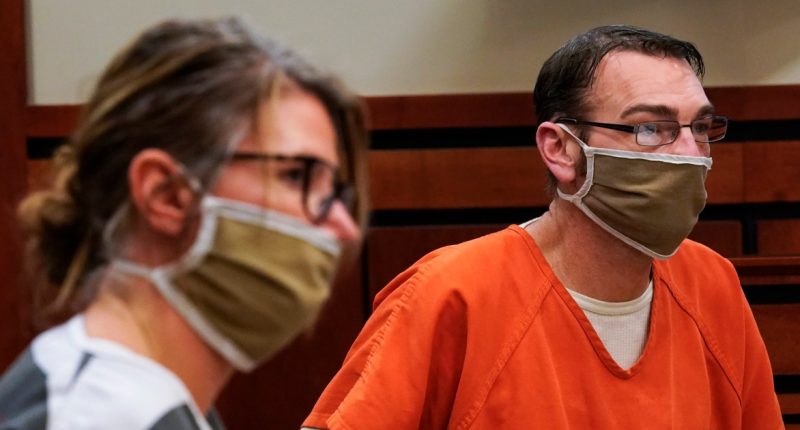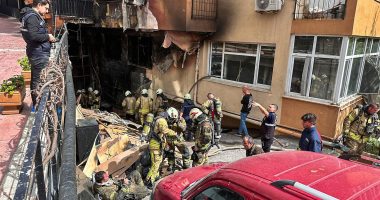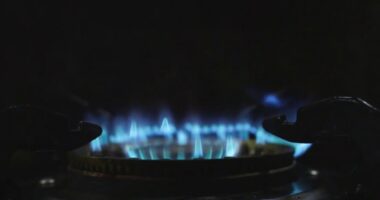
But James Crumbley, 47, could face a harsher sentence after prosecutors said he made threats in jail, legal experts say.
During his trial, Matthews restricted his communication to only his lawyer and clergy.
The sentencing memo for James Crumbley referred to allegations that he made threats against the prosecutor and said that “his jail calls show a total lack of remorse” and that “he blames everyone but himself.”
The memo details the expletive-ridden threats he is alleged to have directly addressed to the prosecutor on multiple recorded jail calls. In one call before the trial, he said, “Karen McDonald, you’re going down,” according to prosecutors. In other calls, he threatened retribution, they said.
James Crumbley’s lawyer, Mariell Lehman, wrote in court documents that the calls did not include threats to physically harm the prosecutor but that he expressed his desire to ensure that McDonald is not able to continue practicing law as a result of her actions in the case.
“It is clear Mr. Crumbley is venting to loved ones about his frustrations related to the lack of investigation done by the prosecution prior to authorizing charges,” Lehman wrote, saying her client is understandably angry at his situation. She said that the alleged threatening statements were in seven calls out of the more than 200 and that in some calls he asked for prayers for the families who lost their children.
The prosecution’s memo also says James Crumbley asserted his innocence in a pre-sentence report, indicating a lack of remorse.
“I feel horrible for what happened and would do anything to be able to go back in time and change it! But I can’t. And I had nothing to do with what happened,” he wrote, according to the prosecution memo. “I don’t know why my son did what he did. HE is the only one who knows.”
Mark Chutkow, a lawyer who previously led the criminal division of the U.S. attorney’s office in Detroit and is not affiliated with the Crumbley cases, said Matthews will have to treat each parent individually at sentencing even if the circumstances are similar.
The “issues of threats, of obstruction, of lack of remorse are very important factors for her to consider when considering what an appropriate sentence is for the father,” Chutkow said. “And these are pretty serious allegations.”
Lehman has not said whether she plans to appeal James Crumbley’s verdict, while a lawyer for Jennifer Crumbley, Shannon Smith, has written that she will.
“It puts Jennifer in a bit of a quandary, because courts will typically give leniency to somebody at sentencing for acceptance of responsibility,” Chutkow said. “But that’s hard to do if you’re appealing your conviction.”
Two separate trials
James Crumbley did not take the stand during his trial. His wife testified that she placed the responsibility of securing the 9 mm semiautomatic handgun used in the shooting on her husband.
Asked whether she would have done anything differently, Jennifer Crumbley told jurors, “I don’t think I’m a failure as a parent.”
Prosecutors argued that she knew of her son’s deteriorating mental health and social isolation and that he had access to a gun but that she cared more about her hobbies and carrying on an extramarital affair than about being present at home.
Her defense lawyer attempted to portray her as a caring mother, albeit one who did not know her son was capable of such violence — suggesting instead that his school failed to fully inform her of his troubles and that her husband was responsible for the weapon.
Smith continued to defend her client in her sentencing memo.
“Criticizing Mrs. Crumbley for being ‘rarely home’ is a sexist and misogynistic attack on a mother,” Smith wrote.
In a pre-sentence report, Jennifer Crumbley said she has the hindsight now to know she would have handled things differently.
“With the information I have now, of course my answer would be hugely different,” she said. “There are so many things that I would change if I could go back in time.”
Both her and her husband’s trials centered on the day of the shooting, Nov. 30, 2021.
A day after Thanksgiving, prosecutors said, James Crumbley bought their son the handgun, while Jennifer Crumbley took him to a gun range that weekend.
On Tuesday, a teacher said she had found a note on Ethan’s desk with a drawing of a gun and a person who had been shot, along with messages including: “The thoughts won’t stop. Help me.”
That discovery prompted the school to summon the parents for a meeting, but school officials testified that they declined to bring him home because they had to go back to work.
The officials also said that if the parents had informed them that their son had access to a gun, they would have been more authoritative to ensure immediate safety.
Ethan would go on to commit the school shooting later that afternoon, killing Madisyn Baldwin, 17; Tate Myre, 16; Hana St. Juliana, 14; and Justin Shilling, 17.
Victims’ families want accountability
In the aftermath of the trials, the victims’ families have demanded further accountability. They are seeking changes to governmental immunity laws that protect schools from being sued and want to see a requirement for independent reviews after any mass shooting.
Oakland County prosecutors have said they do not plan to charge anyone else in connection with the massacre.
Steve St. Juliana, Hana’s father, told NBC News last month that he realizes it’s a “high bar” to find officials criminally responsible, as well.
“Our children are dead. They’re not coming back,” he said. “We’re fighting for everybody else and to try to wake people up to realize that what happened here in Oxford can and will happen again.”
Selina Guevara and Maggie Vespa reported from Pontiac and Erik Ortiz from New York.
Source: | This article originally belongs to Nbcnews.com









